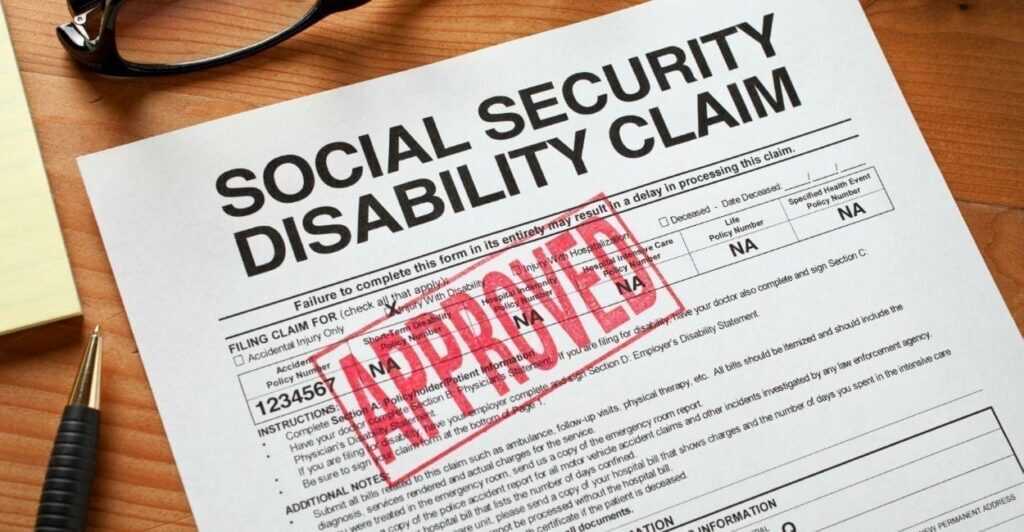Diabetes and Disability | Bishop Law Firm

If you or someone you care about is unable to work due to diabetes, read the following information on how the Social Security Agency evaluates your disability benefit claims.
The Bishop law firm has represented North Carolina disabled clients since 2009. If you are looking for a diabetic disability lawyer, we will not be paid unless you win the case and we offer free case reviews. Call us now or start your free case review online now.
What is diabetes?
According to the CDC, diabetes is a chronic health condition that affects the way the body turns food into energy. The body turns most food into glucose and releases it into the blood.
When this sugar (glucose) is released into the bloodstream, the pancreas should release insulin to convert it into energy.
In people with diabetes, the pancreas cannot produce enough insulin hormone,,,,, So sugar just stays in the blood. Diabetes is an endocrine disease because it disrupts hormone regulation (UC Davis).
In many cases, medication and lifestyle changes can reduce the severity of diabetes, but this is not always the case.
Types of diabetes
There are two types of diabetes: Type I diabetes usually occurs in young people (requires insulin), while type II is usually later in life. Unfortunately, type II diabetes now occurs more frequently in children.
Any type of diabetes can cause symptoms such as dry mouth, fatigue, blurred vision, frequent urine and neuropathy. In some cases, even amputation and heart problems can be caused by your diabetes. People with diabetes must eat carefully and monitor their blood sugar.
Likewise, diabetic patients can be insulin-dependent or non-insulin-dependent. Insulin can be given to the body in different ways: needles and syringes, insulin pumps, pens, inhalers, and even artificial pancreas (via NIH).
Diabetes drugs
In addition to insulin, non-insulin drugs can also be used in type II diabetes. metformin; Januvia or Nesina (DPP-4 inhibitor); Trulicity or Ozempic (GLP-1 and Dual GLP-1/GIP receptor agonist); Brenzavvy (SGLT2 inhibitor); glipizide (sulfonylurea) and Actos (TZD) (according to the American Diabetes Association) as examples.
Despite the advancements in diabetes treatment, some patients have problems finding appropriate diabetes medications even if they follow a strict diet and religiously check their blood sugar.
Complications of diabetes
Unfortunately, brittle or unstable diabetes can also occur. When someone is “brittle diabetes,” it means they have uncontrolled diabetes, which turns from hypoglycemia to hyperglycemia.
Fluctuations in blood sugar levels can lead to health problems in patients with severe diabetes. Diabetics can develop ulcers, so footwork is crucial.
Diabetic ketoacidosis is also a life-threatening complication of diabetes. DKA occurs when the body does not have enough insulin to provide energy, so the liver breaks down fat and produces ketones. A large amount of ketones will acidify your blood acid (according to the Mayonnaise Clinic).
Unfortunately, diabetes is associated with peripheral vascular disease, coronary artery disease, chronic heart failure, neuropathy and kidney disease. Read the post below for information about related diseases.
What types of social security disability benefits are available?

The first step in obtaining the disability benefits of diabetes is to complete the preliminary application for social security disability. You can apply online or at the local SSA office. When you apply for benefits, the SSA will determine the type of disability benefits you can apply for.
Social security generally offers two types of social security disability benefits: SSDI and SSI. Although SSDI and SSI are separate Social Security Disability Programs with different requirements, persons with disabilities must be found before they are entitled to any benefits.
Social Security Disability Insurance (SSDI)
SSDI (Social Security Disability Insurance) is based on the credit for the work you have done throughout your life. Must be found before your date insurance (DLI) and be found eligible for SSDI. Your DLI is calculated by calculating the “coverage” from the earnings record. You have to have 20 “coverages” over the last 40 quarters. In short, you have to work for 5 years (usually) in the past decade to qualify for SSDI benefits. In addition, adult children with disabilities can receive benefits from their parents’ accounts.
Supplementary Safety Income (SSI)
SSI (Supplementary Safety Income) is a needs-based program that, in addition to being found to be disabled, you must also meet the income/asset standards. In 2025, the individual’s SSI is $967 per month and a qualified couple is $1,450. If you get financial help from others, SSI will be reduced by 1/3. In NC, SSI recipients are also entitled to Medicaid.
SSI is also applicable to children with disabilities and is evaluated according to different criteria than adults. Children must have definable physical or mental disorders or disorders (including emotional or learning problems) that can lead to obvious and severe functional limitations, and the damage has been or can last for at least 12 months, or is expected to result in death. Child SSI terminated at the age of 18. The claimant will then have to reapply.
Social Security Disorders for Diabetes
As with all applications of SSA disability benefits, the name of your damage is usually not as important as the severity of the symptoms.
Social Security defines disability as: “You must not engage in any substantial paid activities (SGA) because a medically definable physical or mental disability (IES) is expected to result in death or persistence or expected to last for at least 12 months.
You must have a medical record from the treatment doctor to prove that the symptoms of diabetes are severe enough to stop you from working and unable to work for 12 months or result in death.
If medication and lifestyle modifications relieve your symptoms, you will have a hard time catching the benefits of disability. When medical evidence shows that they have problems in controlling blood sugar, people with diabetes will award disability benefits and complications will show symptoms of disability.
When I first started practicing Social Security with Disabilities Act, there was a separate list of diabetes. Despite the protests, SSA deleted the list in 2011.
SSR 14-2P
Although the SSA removed the diabetes list in 2011, they did issue SSR 14-2P, which discusses how they will evaluate disability claims for diabetes.
As you will see in this ruling in Section II-C, the Social Security Agency now evaluates diabetes under body parts affected by diabetes. For example, if amputation is necessary due to diabetes, it will be evaluated in Listing 1.05 (Ambushes). Diabetic retinopathy was evaluated in the visual loss list: 2.02, 2.03, and 2.04.
Medical Association Guidelines (Grid)
In addition to the list discussed under 14-2P, SSA can also use the Medical Career Guide (Grid) to find the disability of a person with a disability in the age of 50 or older; and, symptoms of the combination of impairment may also be used to find your disability.
Social Security will use your symptoms, work history, and education level to determine your remaining functional competence (RFC). Despite its limitations, RFC is the most you can do. Your RFC will decide whether to be disabled based on the grid.
In my patients with diabetes, obesity, neuropathy and hypertension, it often happens at the same time. Social Security should aggregate the symptoms of all obstacles to determine if you can work.
Unfortunately, in some cases, diabetes can still have serious complications even when high blood sugar levels are controlled. With severe symptoms, such as vision loss or cooked feet, your doctor may have to prescribe prednisone (steroid) to stop the inflammatory process.
Steroids increase blood sugar levels in people with diabetes. This could put people with diabetes in a terrible position, which should definitely be pointed out to the Social Security Agency (SSA).
Do you need an experienced diabetes disability lawyer?

Having an experienced disability lawyer around you can help you understand that SSA finds your disabled person from you. In addition to reporting symptoms, you also need a medical record that you have followed medical advice and are unable to work due to diabetes.
We recommend that our clients not worry about meeting lists! If you encounter a list, the work has been removed for a long time. If you are unable to work due to your health, apply for benefits now. Delays may cause you to lose benefits.
If you need a Social Security Disability Attorney, the Bishop Law Firm can help. We have represented many DDS (Disability Determination Services) clients at the Administrative Law Judges of Social Security Administration, the Appeals Board (AC) and the District Court (DC).
We represent clients with disabilities: Raleigh, Durham, Fayetteville, Cary, Rocky Mountain, Wilson, Smithfield, Louisburg, Chapel Hill, Roanoke Rapids, Winston Salem, Garner, Garner, Greensboro, Greenville, and Greenville.
We won't get paid unless we win and we offer free case reviews. Call us now or start your free case review online now.



